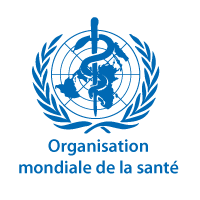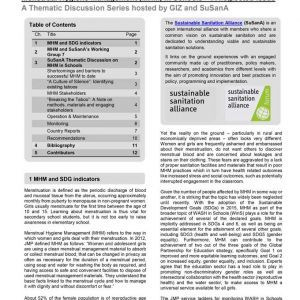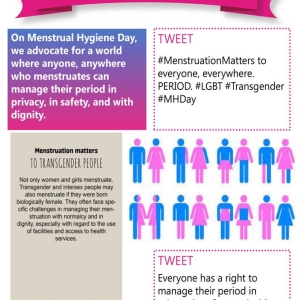Description
Water, Sanitation and Hygiene Standards for Schools in Low-cost Settings
Diseases related to inadequate water, sanitation and hygiene are a huge burden in
developing countries. It is estimated that 88% of diarrhoeal disease is caused by unsafe water supply, and inadequate sanitation and hygiene (WHO, 2004c). Many schools serve communities that have a high prevalence of diseases related to inadequate water supply, sanitation and hygiene, and where child malnutrition and other underlying health
problems are common.
Schools, particularly those in rural areas, often completely lack drinking-water and sanitation and handwashing facilities; alternatively, where such facilities do exist they are often inadequate in both quality and quantity. Schools with poor water, sanitation and hygiene conditions, and intense levels of person-to-person contact, are high-risk environments for children and staff, and exacerbate children’s particular susceptibility to environmental health hazards.
Children’s ability to learn may be affected by inadequate water, sanitation and hygiene conditions in several ways. These include helminth infections (which affect hundreds of millions of school-age children), long-term exposure to chemical contaminants in water (e.g. lead and arsenic), diarrhoeal diseases and malaria infections, all of which force many school children to be absent from school. Poor environmental conditions in the classroom can also make both teaching and learning very difficult.
Girls and boys are likely to be affected in different ways by inadequate water, sanitation and hygiene conditions in schools, and this may contribute to unequal learning opportunities. Sometimes, girls and female teachers are more affected than boys because the lack of sanitary facilities means that they cannot attend school during menstruation.
The international policy environment increasingly reflects these issues. Providing
adequate levels of water supply, sanitation and hygiene in schools is of direct relevance to the United Nations (UN) Millennium Development Goals of achieving universal primary education, promoting gender equality and reducing child mortality. It is also supportive of other goals, especially those on major diseases and infant mortality.
At the same time, the UN Millennium Project and the UN Secretary-General have
highlighted the importance of rapidly addressing “quick wins”; that is, identifying
specifically provision of services to schools and health-care facilities.
Guidelines on water, sanitation and hygiene in schools are widely available, but
additional guidance and standards for low-cost settings are needed.
The development and implementation of national policies, guidelines for safe practices, training and promotion of effective messages in a context of healthy schools will decrease the toll taken by inadequate water, sanitation and hygiene.
These guidelines deal specifically with water, sanitation and hygiene, and are designed to be used in schools in low-cost settings in low- and medium-resource countries to:
• assess prevailing situations and plan for required improvements;
• develop and reach essential safety standards as a first goal; and
• support the development and application of national policies.
The guidelines are written for use by education managers and planners, architects, urban planners, water and sanitation technicians, teaching staff, school boards, village education committees, local authorities and similar bodies.







 AAEA
AAEA AAEA
AAEA
Reviews
There are no reviews yet.